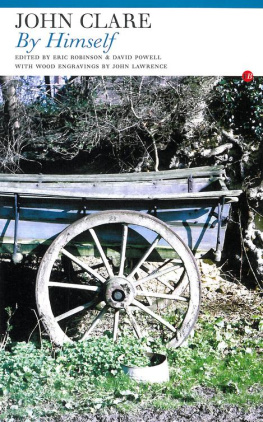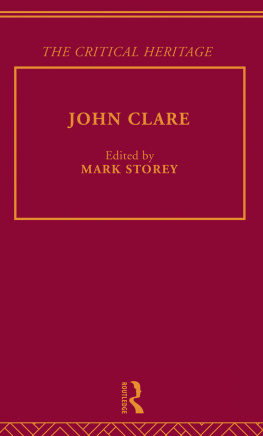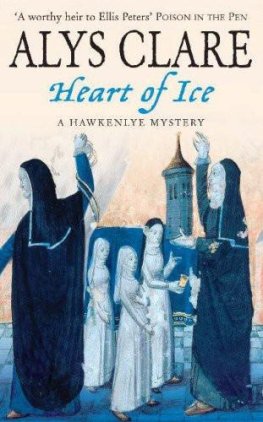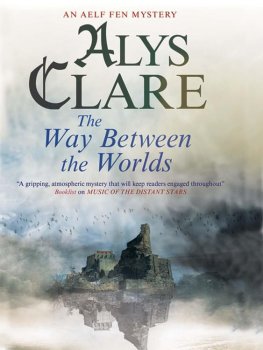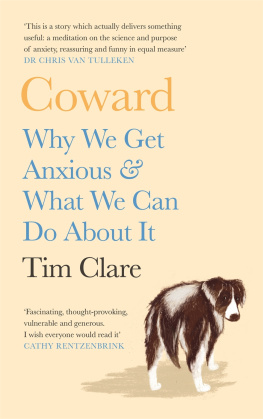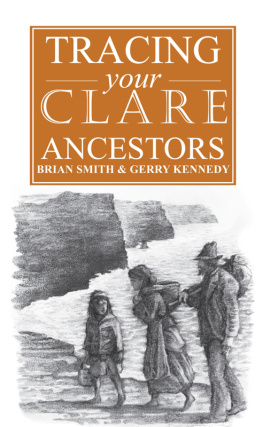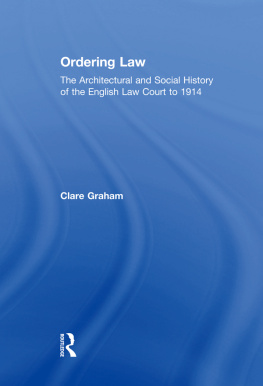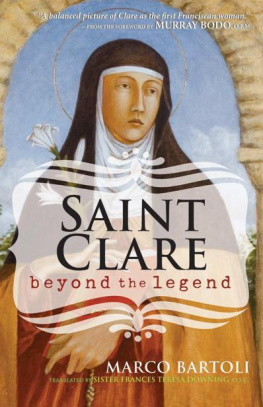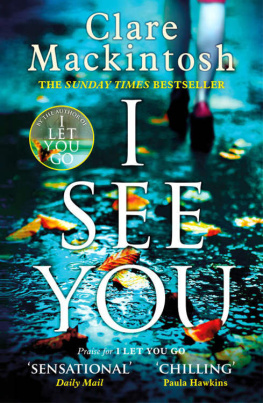Clare John - John Clare By Himself
Here you can read online Clare John - John Clare By Himself full text of the book (entire story) in english for free. Download pdf and epub, get meaning, cover and reviews about this ebook. City: Manchester, year: 2014;2013, publisher: Carcanet, genre: Non-fiction. Description of the work, (preface) as well as reviews are available. Best literature library LitArk.com created for fans of good reading and offers a wide selection of genres:
Romance novel
Science fiction
Adventure
Detective
Science
History
Home and family
Prose
Art
Politics
Computer
Non-fiction
Religion
Business
Children
Humor
Choose a favorite category and find really read worthwhile books. Enjoy immersion in the world of imagination, feel the emotions of the characters or learn something new for yourself, make an fascinating discovery.
- Book:John Clare By Himself
- Author:
- Publisher:Carcanet
- Genre:
- Year:2014;2013
- City:Manchester
- Rating:3 / 5
- Favourites:Add to favourites
- Your mark:
- 60
- 1
- 2
- 3
- 4
- 5
John Clare By Himself: summary, description and annotation
We offer to read an annotation, description, summary or preface (depends on what the author of the book "John Clare By Himself" wrote himself). If you haven't found the necessary information about the book — write in the comments, we will try to find it.
John Clare By Himself — read online for free the complete book (whole text) full work
Below is the text of the book, divided by pages. System saving the place of the last page read, allows you to conveniently read the book "John Clare By Himself" online for free, without having to search again every time where you left off. Put a bookmark, and you can go to the page where you finished reading at any time.
Font size:
Interval:
Bookmark:
FyfieldBooks present poetry and prose by great as well as sometimes overlooked writers from British and Continental literatures. Clean texts at affordable prices, FyfieldBooks make available authors whose works endure within our literary tradition.
The series takes its name from the Fyfield elm mentioned in Matthew Arnolds The Scholar Gypsy and in his Thyrsis. The elm stood close to the building in which the Fyfield series was first conceived in 1971.
Roamon!Thelightwesoughtisshiningstill.
Dostthouaskproof?Ourtreeyetcrownsthehill,
OurScholartravelsyetthelovedhill-side
from Thyrsis
Maps drawn by Reginald Piggott; research by Bruce Bailey
From his birth in Helpston in 1793 to his death in Northampton in 1864, except for four visits to London, some months in Epping Forest and his years in the Northampton General Lunatic Asylum, John Clare never travelled more than a few miles from his native village. He lived at first under the same roof as his parents in Helpston, moved to another cottage in Northborough only a few miles away in 1832, and then from 1841 spent the remainder of his life in Northampton.
Clares life-story is told against the background of a particular landscape with its fens, its heaths, its sheep-pastures and its villages and market-towns. (It is significant that Clare uses the word town to denote any settlement, however small.) He talks of Will-o-the-wisps (or Jenny burnt-arses), of ghosts and poachers, of spires peeping over stiles, of bird-haunted thickets, of lonely farms, and of the threshers, gleaners and weeders in his native fields. The skies of the Fens always overshadowed him, and there is no writer from whom one gets a better sense of an unbroken horizon or of the scarlet flames of sunset and sunrise. In this landscape he breathed freely: once he left it, he felt suffocated and began to lose touch with reality. He speaks constantly of the lordship, the area under the control of the lord of the manor, or of his world, the locality with which he was familiar. It is not uncommon to this day to find on the edge of English towns a pub called The Worlds End, as though when one reached the boundary of a familiar settlement one dropped over the edge of the horizon. Clares sense of identity is intimately involved with his awareness of his birthplace and of all the living things that he remarked within his locality:
I lovd the meadow lake with its fl[a]gs and long purples crowding the waters edge I listend with delights to hear the wind whisper among the feather topt reeds and to see the taper bulrush nodding in gentle curves to the rippling water and
The Tibbles, in their edition of Clares prose, speak of the Sketches as
the enchanting account of a vanished English childhood and youth, far away from, while yet contemporary with, the French terror and the Napoleonic Wars an account of a country childhood during one of the hardest periods of Enclosure , when rustic activities and customs, now swept away for ever, were still in full swing.
In fact the Terror, the Napoleonic Wars, and even Enclosure are so far removed from Clares preoccupations that they only appear on the scene as part of a local experience in the POW camp at Norman Cross, in the strange antics of the militia, and in the inconvenience of fences. This is the world seen through the wrong end of the telescope but filled with its own strange intensity . In the London episodes, the great wander across the scene Lamb, Coleridge, Hazlitt, Reynolds, Sir Thomas Lawrence and others or Byron, Clares hero, is seen through the eyes of a poor sailor, but most of the characters are purely local. Granny Bains, John Cue of Ufford, old Shepherd Newman, John Billings, George Cousins: these are people who but for Clare would have been entirely forgotten. They and their countryside become the setting for Clares Paradise.
He tells us much about the people of the hardships suffered by poor men, their humiliations and their sense of oppression, but also of their joys, their festivities and their songs. Sometimes, as in his Apology for the Poor, one hears his honest anger:
now if the poor mans chance at these meetings is any thing better then being a sort of foot cushion for the benefit of others I shall be exceedingly happy to hear but as it is I much fear it as the poor mans lot seems to have been so long remembered as to be entirely forgotten
or when he speaks of one rude visitor:
he then asked me some insulting libertys respecting my first acquaintance with Patty and said he understood that in this country the lower orders made their courtship in barns and pig styes and asked wether I did I felt very vext and said that it might be the custom of high orders for aught I knew as experience made fools wise in most matters but I assured him he was very wrong respecting that custom among the lower orders here
Since PiersPlowman there has hardly been an authoritative voice in English literature to speak for the ploughmen, the threshers, the hedgers, shepherds, woodmen and horse-keepers, until Clare began to write. Robert Bloomfield is perhaps the nearest. The farmer-journalist William Cobbett is heard loud and clear, and so, at a later date, is the gamekeeper Richard Jefferies. Joseph Ashby of Tysoe is nearer to Clare in social status, but none of these is his equal. As Edmund Blunden said, Clares autobiographical writings contain
fresh information on the early life and thoughts of a poet of the purest kind: originality of judgment, bold honesty; illuminating and otherwise unobtainable observations on intimate village life in England between 1793 and 1821; a good narrative nearly as good as Bunyan and plenty of picturesque expression. It will be a long time before a voice again speaks from a cottage window with this power over ideas and over language.
The people of Clares autobiography Will Farrow, the cobbler; Hopkinson, one of that increasing number of clerical magistrates who posed a special problem on the bench by their mixing of law and morality; Henson the bookseller and Ranter-preacher; the servants at Milton; the head-gardener at Burghley; the boy, John Turnill are as lively and individualized as characters from TheCanterburyTales, of which Clare was a great admirer. And when we move from individuals to meetings, ceremonies and occasions such as religious holidays, singing and dancing with the gypsies, drilling with the militia or walking Vauxhall Gardens in London, there too all is light and colour, and we may well agree that the year was crowned with holidays.
Clare transformed the people and the fields they roamed by suffusing them with the glow of childhood for Clares autobiography is as remarkable a vision of childhood as the poems of Blake and Traherne. It is a deliberate vision of Eden before the Fall and a realistic appraisal of Eden after it. The Sketches are mostly representative of the former vision and the Autobiographical fragments increasingly reflect the latter as Clares disenchantment grew over the years. The Autobiographical fragments are much more openly critical of the middle classes, revealing Clares aversion to simpering misses and pompous magistrates, to pretentious militia officers and grasping farmers, to overbearing surveyors and interfering ministers.
Like other authors in the same vein, Clares language often has a strong proverbial quality: I was quite in the suds; Send him to Norberrey hedge corner to hear the wooden cuckoo sing; I was in that mixd multitude calld the batallion which they nick namd bum tools for what reason I cannot tell the light Company was calld light bobs and the granadeirs bacon bolters; I was now wearing into the sunshine; Another impertinent fellow of the Name of Ryde who occupys a situation which proves the old Farmers assertion that the vilest weeds are always found in the richest soil. Indeed the same forcefulness of language runs throughout Clares prose as one finds in the newspapers and almanacs of the day.
Font size:
Interval:
Bookmark:
Similar books «John Clare By Himself»
Look at similar books to John Clare By Himself. We have selected literature similar in name and meaning in the hope of providing readers with more options to find new, interesting, not yet read works.
Discussion, reviews of the book John Clare By Himself and just readers' own opinions. Leave your comments, write what you think about the work, its meaning or the main characters. Specify what exactly you liked and what you didn't like, and why you think so.

